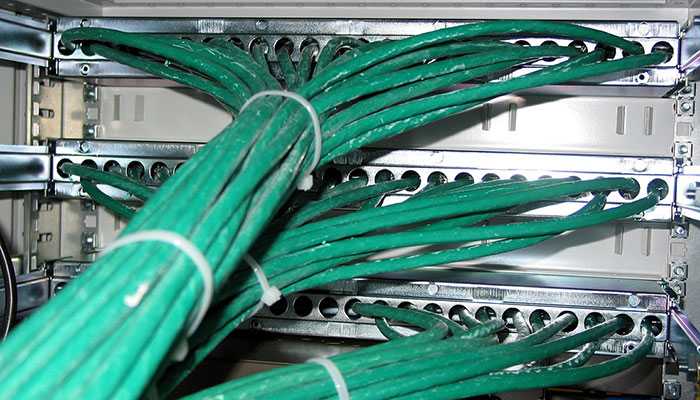Connectivity and efficiency are key to any small business in the modern world. Setting up and maintaining a good small business computer network within your premises is one of the best ways to enhance both of these.
A well designed and implemented office network can allow you to offer internet connection to visitors or to operate hot desking amongst your own staff. It can also allow quick and easy file sharing throughout your organisation, and more efficient and straightforward printing solutions. It is crucial, therefore, for you to understand the basics of setting up your own small business computer network and it is they which we will cover in as much detail as possible below.
Wired or Wireless
Whether to implement wireless or wired networking solutions is one of the first choices you will encounter when setting up your network. Many companies today tend to choose the wireless option but there are still both benefits and issues with each alternative.
Wireless solutions are increasingly popular due largely to the fact that they can lead to more attractive and arguably safer office environs. This is the case as they obviously involve fewer wires and cables which can be unsightly and cause a trip hazard. What’s more, a wireless based network also offers more options when it comes to the physical locations of hardware and the possibility of hot desking. Visitors too, when a wireless network is implemented, can be more rapidly and easily afforded internet connection if required.
Ethernet-based wired networks, however, do often still hold a number of advantages of their own. These can most notably be identified in the areas of cost, reliability and connection speed. Wired networks after all, still largely remain cheaper to install and run, and often deliver faster and more reliable connection speeds which can be crucial to day to day business operations.
Whether to opt for a wired or a wireless solution then, tends to depend upon your individual circumstances and which of the above factors you view as the most important.
The Equipment
The vast majority of the most modern operating systems have networking capabilities included as standard to make it simple to network PCs together. To create the most efficient small business computer network possible, however, you will still need some other vital equipment.
Aside from your crucial small business hardware – PCs, printers, scanners etc. – you will need to invest in at least some networking equipment. Dependant on the type of network you choose to implement that is likely to include routers, Ethernet cables and network switches.
Routers, whether wired or wireless, connect your networked computers to the internet and work to tie several networks together. Network switches meanwhile, connect devices like your PCs and printers to the same network, allowing them to communicate and share information efficiently.
The best network solution for your business, therefore, will incorporate a selection of this varying equipment to get the best out of your hardware and provide you with the very best connectivity.
Securing the Network
The final crucial element of setting up any small office computer network is ensuring its ongoing security. Fortunately, there are a number of different things which you can do in order to achieve this.
Limiting access to the network to only authorised users is a sensible first step and can be achieved through setting up user accounts and passwords through Windows. Beyond this, it is obviously also advisable to protect your network with anti-virus software and other measures to guard against malware and cyber-attack.
Finally, you could also consider implementing more exacting security measures, such as introducing wireless encryption protocol for a wireless network, or adding hardware security like fingerprint recognition.
If that has got you thinking more about the makeup of your small business computer network, and you wish to seek expert and bespoke advice to help improve its efficiency, contact EC-MSP today and we will be happy to assist.




